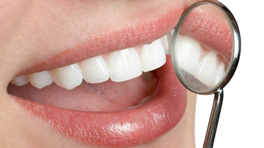As you drift from light to a deep sleep, your throat muscles and soft palate and your tongue relax, and any of these may partially block your airway. Snoring is the sound made when air tries to pass this partial blockage as you breathe, causing vibration of these soft tissues. More than disrupting a good night’s sleep, snoring may indicate the more concerning condition of sleep apnoea.
Obstructive Sleep Apnoea (OSA) occurs when the obstruction completely cuts off the air supply. Your brain registers this lack of air and responds with an impulse signal causing partial awakening, and a gasp for air. Sleeping is then resumed with normal breathing until the next episode. Usually the patient is completely unaware of the partial awakening. This cycle can occur dozens of times a night. In severe cases the non-breathing episodes last anywhere from a few seconds to as long as one minute.
Snoring and sleep apnoea therefore contribute to constant daytime sleepiness, fatigue, poor concentration and an increased risk of having a motor vehicle accident. Apnoea is related to high blood pressure, heart attack and stroke, as well as low testosterone levels.
Being overweight is an important contributing factor to sleep apnoea. Often losing 5 to 10 kilograms of weight can reduce the severity and occurrence of the non-breathing episodes. Other factors that can contribute to sleep apnoea include a low fitness level and smoking. Any alcohol consumption before sleep, can also significantly contribute to sleep apnoea and to snoring.
A dental appliance custom-fitted by Dr Baetz to reposition your lower jaw forwards helps to keep your airway open during sleep, thereby often reducing snoring and sleep apnoea. If you or your partner snore or you have noticed episodes of non-breathing, call and schedule a consultation assessment appointment with Dr Baetz. Please note that sleep apnoea is a dangerous illness and a referral to a specialist sleep physician will be made, for proper assessment, before Dr Baetz will fit a dental sleep apnoea device.
Please note any surgical or invasive procedure carries risk. Before proceeding, you should seek a second opinion by a suitably qualified healtcare professional.






